South Africa
The accounts of a police clampdown on young protesters in South Africa 40-odd years back, bring into sharp focus the issue of police involvement during public protests and the extent to which the law enforcers can, and should, go to maintain the ‘the law.’
Africa, and indeed the world over, there are instances of police clashing with protesters for different reasons. In our fourth installment of The Soweto Uprising, we look at the policing situation on the continent today with special focus on four countries, the DRC, Kenya, Egypt and Uganda.
Police across Africa have been busy of late. Busy exerting force on citizens, openly whipping people, tear gassing others, detaining others and of course courting controversy as is the case in Ghana.
“The police is your friend,” has become a cliché in most parts of Africa where the police try to portray their soft side usually on posters and public advertisements. But beyond these two arenas, it’s a different ball game.
Police in the Democratic Republic of Congo, Egypt, Nigeria, the Gambia, Kenya and Uganda have over the past weeks done a lot to draw the attention of rights groups regarding “police force” and or “brutality.”
DR Congo police
The situation in DR Congo is particularly intriguing especially because for the three times that Moise Katumbi appeared before a court in Lumumbashi, police had to disperse – instead of control – a crowd that they have been expecting, given the political undertones in the Katumbi summons.
Eventually their actions of firing of tear gas resulted in the hospitalisation of the man. As if that wasn’t enough days later, a campus demonstration in a school resulted in a tear gas and stone battle. Killing a police woman in the process.
#DRC clashes between students and police in Kinshasa https://t.co/3c7VlhY2aX
— Nelly M (@MNmobula) May 27, 2016
Jittery Egyptian policing
The Egyptian situation combines police and the rather no-nonsense army. With a recent history of protests sparking uprisings, officials almost always want to quench the flames of protest even before they are overtaken by events.
Unfortunately that zeal has translated to mass arrests and arraignment of people presumably innocent before the law. The recent case of arrests over an island deal with Saudi Arabia is a typical example.
It should be noted examples of abuses by police forces are by no means limited to Africa – cases elsewhere can be cited in France, Turkey Germany and Brazil where police have had to use force on peaceful protesters.
Most of the protests that have erupted in #Egypt were about police brutality says
— The Tahrir Institute (TimepDC) June 15, 2016NancyGEO#HRC32
Rampaging Kenyan police
Democratic protests against an electoral body was all Kenyan opposition coalition CORD needed to set ordinary citizens on a collision course that showed the “beastly” side of Kenyan police.
Tear gas cannisters, water cannon, batons and whips and full riot gear was on display whenever CORD dared to defy the police position that their protests were illegal, an “illegality” that the courts recently overruled.
There was blood, there was chaotic commotion, people were pursued by the rampaging police and even deaths resulted in some cases. Interestingly the police recorded more injury casualties than the protesters, or so we are told.
What then becomes of an irreparable bodily or property damage after the courts have ruled that the protests were legal?
Kenya police respond to opposition notification of this week's planned protests pic.twitter.com/ZavCOTMG1O
— Samira Sawlani (@samirasawlani) June 12, 2016
‘Ugly’ Ugandan police
The Ugandan police have also reportedly made it a point to harass opposition members at any opportunity.
From the moment Kizza Besigye, leader of the Forum for Democratic Change (FDC) contested the last election results up to his recent arrest on his second political treason charge, Ugandan police have not spared the opportunity to show their ‘might’.
So much so, that members of the party were harassed during a court hearing where Besigye was not even presented to the court on the basis that he was a security risk.
From Uganda Police,Uganda Prisons too acquired the Famous #BesigyeVan pic.twitter.com/Q9roD9PboP
— Samwise Gamgee (@Sambannz) June 17, 2016
In Ghana, as they head to the polls in five months, the police chief has hinted of a social media ban, on the day before and the day of the polls. His proposal has been severely criticised by the media and civil society groups in the country.
The latest to wade in on the issue being the United nations representative in West Africa, Mohammed Ibn Chambas, who said that the UN was avers to any move that would seem to stifle freedom of speech and expression.
The Soweto Uprising is today part of South Africa’s history, but the lessons from the event must never be lost on law enforcement officials.
Photo credit: Peter Magubane (www.dontparty.com)
Shaban Abdur Rahman Alfa
Africanews Web journalist
Republic of Congo, Pointe Noire



![The 1967 Soweto Uprising [4] vis-à-vis contemporary policing in Africa](https://static.euronews.com/articles/335952/400x225_335952.jpg)

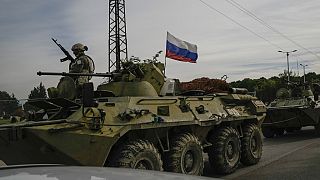
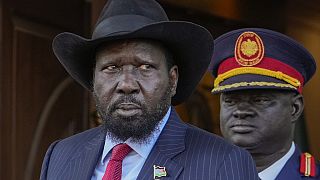
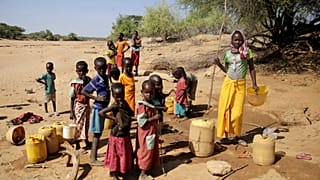
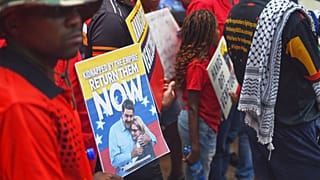
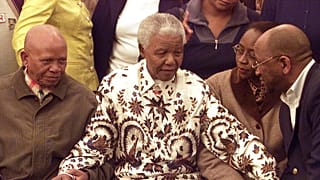
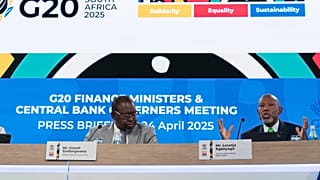
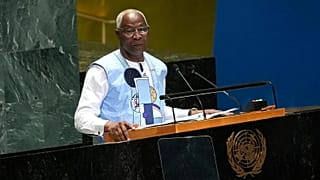
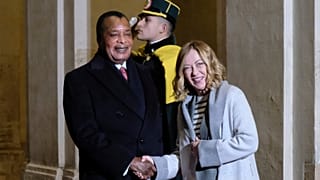
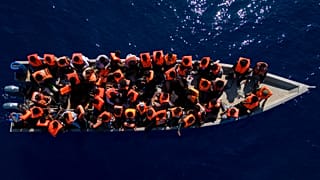
02:13
Families bid farewell to schoolchildren in South Africa killed in a school bus crash
00:29
South Africa's Kruger park suffers 'devastating' damage from floods
Go to video
Nigeria ambush kills 5 soldiers, 1 police officer in Zamfara
Go to video
Nigeria Police deny reports of church abductions in Kaduna
01:21
13 schoolchildren killed in tragic road crash south of Johannesburg
00:54
Floodings kill at least 10 in South Africa, triggering the closure of Kruger Park